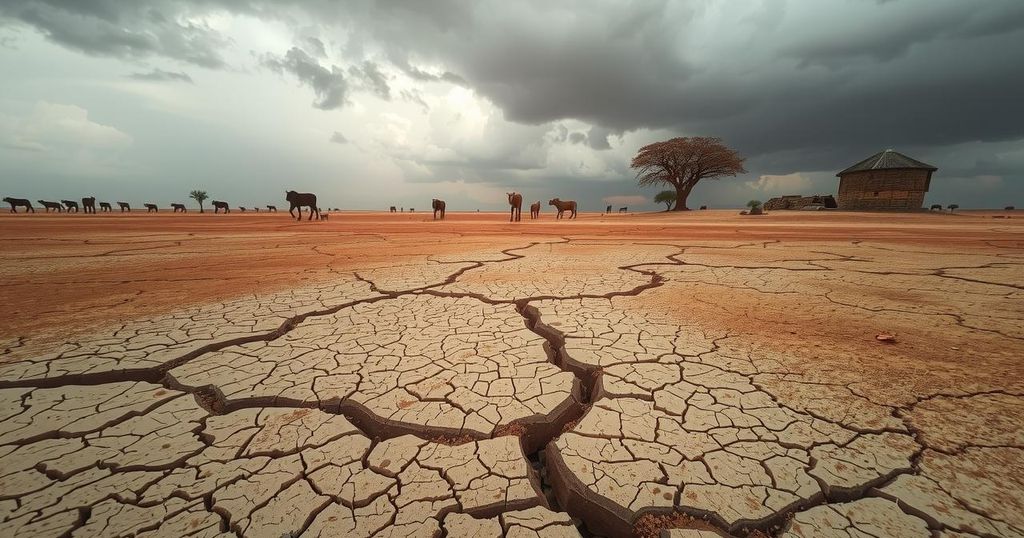Impact of USAID Cuts on Humanitarian Aid in Sudan
Muna Eltahir of Practical Action laments severe USAID funding cuts, impacting aid for water and solar power projects in Sudan. These cuts resulted in job losses and halted critical support for thousands relying on agriculture. The organization seeks alternative funding while communities show resilience amidst adversity during Ramadan.
Muna Eltahir, head of the charity Practical Action in Sudan, has expressed deep concerns regarding recent cuts in aid from USAID. With over 30 years of experience in humanitarian work, she described these cuts as unprecedented in severity, particularly during the ongoing challenges faced by Sudan. Despite the civil unrest and climate challenges, Eltahir’s organization has continued to strive towards alleviating the humanitarian crisis, particularly impacting vulnerable communities.
Practical Action operates primarily in the Kassala and Gedarif states, which are susceptible to drought due to erratic rainfall. The organization empowers local farmers by providing drought-resistant seeds, agricultural tools, and training to boost food security. Moreover, practical solutions are offered, such as constructing water points connected to local sources and providing solar panels through a pay-as-you-go scheme to enhance agricultural productivity and living conditions.
Prior to the USAID funding cuts, the organization was reaching nearly 400,000 people. The aid included $2.5 million allocated for a project benefiting 126,000 individuals by supplying seeds, solar power, and water tanks, which have now been suspended. Eltahir shared the emotional toll of having to inform her staff and the communities affected, leading to job losses and interrupted projects crucial for the upcoming Ramadan.
In response to the crisis, local communities displayed understanding regarding the funding decision from the U.S. government. Despite the hardships, many had already begun planting seeds, although the remaining solar panels and water tanks await further instructions.
Practical Action is actively seeking alternative donors to recover the lost funding as they maintain diversified support. Although USAID accounted for about 25% of their funding, thereby impacting their capability, Eltahir remains hopeful about continuing vital programs for those in need.
The USAID cuts have left communities in Sudan vulnerable, as expressed by Muna Eltahir from Practical Action. With crucial projects suspended, significant loss of jobs occurred, yet the organization continues to seek alternative funding. The understanding from the communities exemplifies resilience amidst adversity, highlighting the need for sustained humanitarian aid in order to support those affected by both man-made and environmental crises in the region.
Original Source: www.context.news




Post Comment